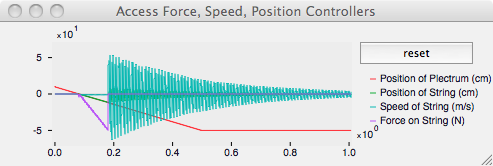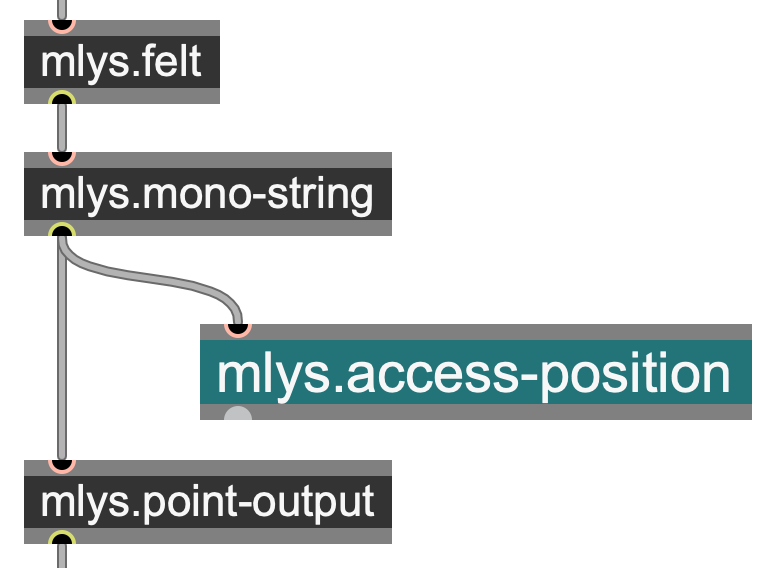Access Position Controller
Description
This controller outputs the position (displacement) of a given access.

Syntax and Default Values
The access-position controller can be created using the following Mlys (Max), mlys.lua, or Lisp syntax:
In Modalys for Max, this object is named mlys.access-position:

⚠️ Because of the graph-oriented nature of Max, the use of this controller is limited in Max and you can connect its inlet to some object's outlet only. For more flexibility, please use the Lua (mlys.lua) flavor!
modalys.create_controller{kind="access-position",
access=<reference to an existing access>}
(make-controller 'access-position
dimension
access)
Parameters
The Access Position controller takes two arguments:
- dimension: n must be set to 1 (automatic for Lua or Max).
- access: reference to an access on an object.
Discussion
The Access Position Controller is an easy way of getting the position of a given access on an object every sample, and using it as a controller. When using a 'force connection, you will generally want to use the access' speed, not its position. Nonetheless, the position could also be used for a variation in the resulting timbre.
The following example takes the pluck from Modalys example 1 and uses the access position of the the string to excite the plate from Modalys example 2 (instead of using a strike connection):
(setq force-ctl (make-controller 'access-position 1 my-string-plk))
(make-connection 'force my-plate-hit force-ctl)
The image at the top of this page shows force, position and speed controllers obtained from the plucked access on the string and a position controller from the plucking access on the plectrum as given in the Modalys plucked string example.
Retro-Compatibility
In a lot of older Modalys scripts (those made before this function was added) the (get-info ... ) function was used with a 'foreign-call controller (formerly called a 'scheme controller) to create a controller outputting an access' position. It is suggested you update such old scripts to use the new syntax, since the calculation time will be significantly faster.
This is an example of how this had formerly been achieved using the 'foreign-call (or, even earlier, 'scheme) controller:
(make-controller 'foreign-call 1 0
(lambda (ins outs)
(vset outs 0 (get-info 'position access-ref)))
'())
★